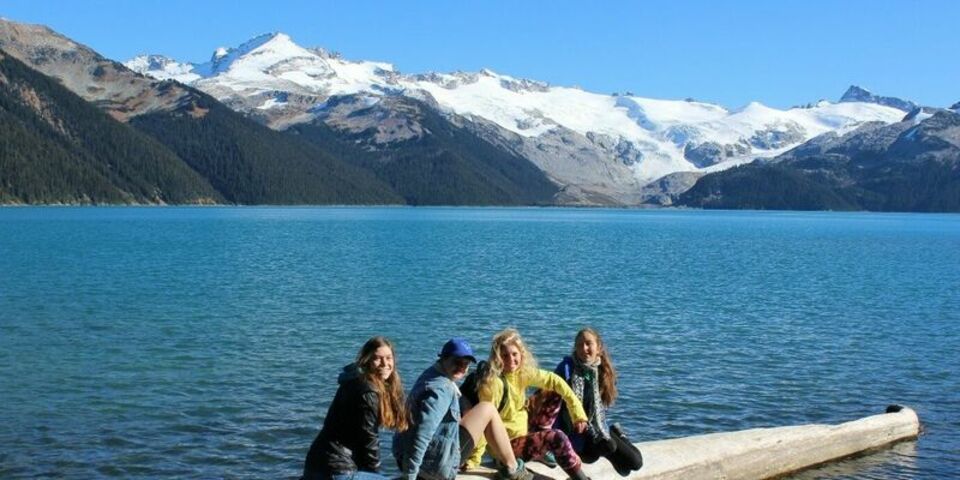Clear policy on exchange-stop difficult for particular students
Once again, due to corona, an exchange program with a university outside Europe is off the table for TU/e students. This is an Executive Board decision announced on November 11th. For some students it is a heavy blow; they had February departure plans and must now seek an alternative for this component of their study program. TU/e is acting in line with its duty of care and its agreements with the receiving universities, though would have much preferred things to be different.
Update December 8th:
The article erroneously refers to DUO regulations with regard to study delay. These regulations do not specifically apply to those situations related to the cancellation of physical (exchange) mobilities. It has been agreed, however, that the department will offer the student alternative study options as a replacement for postponed physical mobilities abroad due to the Corona pandemic, so as to prevent study delay from occurring insofar as possible.
“The plan was that next semester I'd go on an exchange to Simon Fraser University, in Canada, as part of my master's in Industrial Design,” says Minne Zeijdner. “But a week and a half ago, TU/e decided to prohibit all exchanges by which students take courses outside the EU, because they are worried that we wouldn't get our money back if the trip had to be cancelled and because it isn't easy to repatriate someone from outside the EU.”
The fourth-year student, who in theory could already graduate, disagrees with the decision and gives the following reasons. “Internships and projects within the EU are still allowed, but not exchanges outside the EU. What's more, according to the EU, Canada is a safe country and the infection figures in Canada are lower than they are here, and the vaccination coverage is higher.” It seems to Zeijdner that the risk of something going wrong is minimal.
Duty of care
Nonetheless, it is a risk that TU/e neither can nor wishes to take, says ESA's policy officer, Inge Adriaans and ESA manager Dione van Noort. Preparing policy is part of their work and both play an advisory role for the International Experience program, “The university has a duty of care towards students,” says Van Noort. “This means as that a university we are responsible for what we provide for students. With the corona epidemic, new considerations have come into play regarding the foreign study experience; social and physical safety were always taken into account, but now that's not all. We have to look further ahead and make longer-lasting policy.” Twice a year, TU/e makes a decision “which should create calm, bring clarity and be consistent for all students.”
Timeline
“Don't forget that for any exchange we have to work with the rules of the receiving university,” adds Adriaans. “If courses are being taken, we have to work with an early deadline for enrollment at the foreign university in question. This timeline (between enrollment and start) is sometimes six months. This makes it difficult to say as early as November whether or not an exchange to take courses in Q3 can take place.” The risk of closed borders is strong, corona-related developments often occur at short notice and then there's the chance that a receiving university may decide to move online. Van Noort: “Which would leave the student stuck there alone in a lockdown in a foreign country. We think that's a social safety risk.”
When Zeijdner lodged an objection to the decision, she was informed that TU/e makes consistent policy for all exchanges outside the EU. “I can do nothing about it, nor can I sign something to say that I absolve the university of all risk and take on the risk myself,” says the master's student.
Liability
Where does the responsibility lie? It is a major concern for the future - which seems likely to involve corona; with the university or with the student, ponder Van Noort and Adriaans, sighing. “Not every students can handle this responsibility and the associated risk. However much we want to give students a foreign experience, as a university we also have a duty of care towards all students, so at the moment the responsibility lies with TU/e.”
University Council
That the door to an internship or graduation project remains ajar is due to their being independent of the semester, instead they can start at any time. At the request of the students on the University Council, the original advice for semester 1 - which also applies to semester 2 - which read ‘no internships and no courses outside Europe’ was changed to ‘no courses outside Europe and no internship, unless’. “We want to offer the maximum possible,” says Van Noort. Most students are now choosing a place within Europe. Currently, 243 students are in the process of applying for (or already doing) an exchange within Europe and 81 students are scheduled for an internship in a European country plus the United Kingdom, Switzerland, Liechtenstein, Norway and Iceland.
What now?
Zeijdner has submitted an official complaint to TU/e. She says she has been offered no help with the costs she will incur for the delay to her studies and a new study plan that she has to prepare by February. As for the former, Adriaans refers to DUO regulations and for study plans, she assures us, students can go to their own department. “In the advice we've issued, we've stated expressly that alternative study options must be available for cancelled foreign programs. And all the program directors have promised that provision.”


Discussion